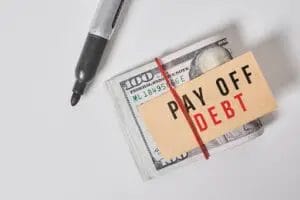Saving money can sometimes be difficult, but developing strategies, doing some important research on big purchases or large bills, and looking over your budget can really assist you when it comes to trying to save some money or reduce the flow of money that leaves your bank account every month.
Let’s look over the top ten brilliant money-saving tips to see what you can do to try and save some more money.
Tip #1: Use Automatic Saving To Your Advantage
‘Pay yourself first’ is a common adage that you’ll find in financial literature practically anywhere, and it makes sense: how are you going to ever set anything aside if you don’t save? This is harder for most people than many like to admit, however. There are ways around it, though.
If you even have a little bit of money left over at the end of the week, utilize automatic deposits from your job to your advantage. If you feel like you’re always blowing extra cash on things you don’t need, or you’re the type of person that has issues with impulse spending, this can help.
$50 a week is $200 a month, which is about $2400 a year. Of course, the more you save each week or month will make it higher, but making any gain is a win. Saving is how you build wealth, so take this top 10 brilliant money-saving tip seriously.
Tip #2: Review And Balance Your Budget
Household budgets are sometimes riddled with unnecessary purchases. In recent years, this has become a little less common, as many are struggling with bills. However, reviewing your budget, even if money is already tight, can sometimes outline certain financial priorities (more on that later).
Look for the biggest, most obvious expenses, and see if any of them line up in your head as things that could be cut or reduced. Sometimes even necessary expenses can be downsized (or you can find a way to make ends meet) if you look deeper into it.
Things like food delivery, for example, are a common example of an expense that adds up that could be reduced (going to pick the food up instead).
Tip #3: Review Your Yearly Spending
Another one of our top 10 brilliant money-saving tips to get a better handle on the amount of money you’re spending — or, looking at it from a different direction, money you’re not saving — is by reviewing not your weekly or monthly spending, but your annual spending.
This might give you a little bit of a bigger picture. How much money do you spend on rent a month? You almost certainly know that, along with your credit card, or car payment, and other common bills.
Could you reduce your payment, though? Is there an obviously large bill that sticks out in your annual spending that you don’t understand? Look for the biggest culprits year-round and you might find some obvious things you can axe.
Tip #4: Cut Unnecessary Expenses
Another thing that some might see as obvious is cutting unnecessary expenses, but doing so isn’t always so easy. It all depends on what you need and what you’re willing to do. For example, you may be able to reduce your monthly food budget by visiting a food bank sometimes. Another example is to purchase a subscription of an app that you use too much to save on additional charges.
Reducing your expenses isn’t always obvious. Sometimes you can visit food banks, other times you can review things like bills or services and see what you’re getting for what you’re paying — sometimes, it isn’t always worth it. Review and see for yourself.
Tip #5: Use Windfalls or Unexpected Money Wisely
Every once in a while — though, definitely, not often enough for most people — you’ll get a windfall, or a big check, or a large chunk of money that you probably didn’t plan on getting. That’s why it’s called a windfall or a luck break, after all.
What matters more than making this happen is what you do when you’re given the opportunity. Paying off debt or investing in yourself can sometimes be the best use for this money, even if it’s not a ‘fun’ use for it. Look at your options when something like this happens to you and you may be able to significantly improve your situation. Many people also invest this money in one-time systematic investment plans.
Tip #6: Meal-Plan to Save Money
Meal-planning is something that many people do to not save just money, but also time. You can also use it to improve your own health. If you’re the type who likes to plan their week out, you may already be doing this, but even if you’re not, it might be a good idea to start.
You can save significantly, make your daily meals better, and save yourself some time in the week. It’s an easy thing to start doing if you invest a small amount, say $50 to $100 in some high-quality containers. It will pay for itself in a short period of time. This will also help you save time.
Tip #7: Travel or Plan Vacations In Smart Ways
There are a lot of ways to reduce your vacation or travel bill if you’re looking to do that. Travel is a large part of people’s lives and many people spend thousands on vacations or traveling every year, so this is a top 10 brilliant money-saving tip: you can really reduce your bill here.
It depends on where you’re going, but looking into things like different flights, train tickets, or alternative forms of transportation can save you money. Plenty of hotel chains and airlines offer all kinds of deals and promotions. Finally, if you’re traveling to a different country, having local friends can also help you a lot in terms of getting around or saving money while you’re away from home.
Here are the best money saving tips while travelling.
Tip #8: Destroy Your Debt
One of the best things you can do for your money is to destroy your debt. Debt is terrible for your finances and is awful for most people. It’s like negative interest. The longer that debt sits, the more you owe, and some interest rates are nearly predatory, even in modern-day America.
Kill your debt as soon as possible and you’ll save more in the long run than almost any other kind of money-saving tips: even, in some cases, investments. Investment rates are usually far lower than debt rates for most people, after all. A yearly 8% on your 401K is much less than, say, credit card debt with 20-30% interest.
Tip #9: Buy Things Used, Not New
Another one of our top 10 brilliant money-saving tips is to buy things used, not new.
Tons of people know this, but they still don’t do it. By buying a product used, you can sometimes save up to 30%-50% on its value or more. The best things to buy are generally things that last a while: like game consoles, cars, household objects, paintings or decorations — as long as they’re in decent condition.
One important thing to note here is that most digital assets are decpiricaitng and buying them brand new will never yield much returns if you plan on selling it years later.
Tip #10: Look Into Investments, 401K, ROTH IRA, etc.
Finally, one of the biggest ways to save money long-term is probably with things like investments, 401ks, or a ROTH IRA. Investments in general are great at growing your money over time. Saving a small or a moderate amount of money in the short-term can result in you saving a huge amount of money in the long-term.
If you balance your budget, save, destroy your debt, think long-term, and pull yourself out of most bad financial situations. Keep saving and working and you’ll be in a better place sometime sooner than you think!



